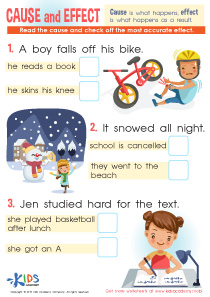Reading comprehension Normal Reading Non-Fiction Worksheets for 6-Year-Olds
19 filtered results
-
From - To
Welcome to our Reading Comprehension Normal Reading Non-Fiction Worksheets for 6-year-olds! Designed to enhance young readers' understanding, these engaging worksheets focus on non-fiction texts, encouraging curiosity about the world. Each worksheet features age-appropriate topics, stimulating questions, and activities that promote critical thinking and comprehension skills. Children will learn to identify main ideas, grasp details, and make connections with real-life concepts while enjoying fun and informative content. Perfect for home or classroom use, our resources support early literacy and ignite a love for reading. Foster a sense of exploration and discovery as your child builds essential reading skills!
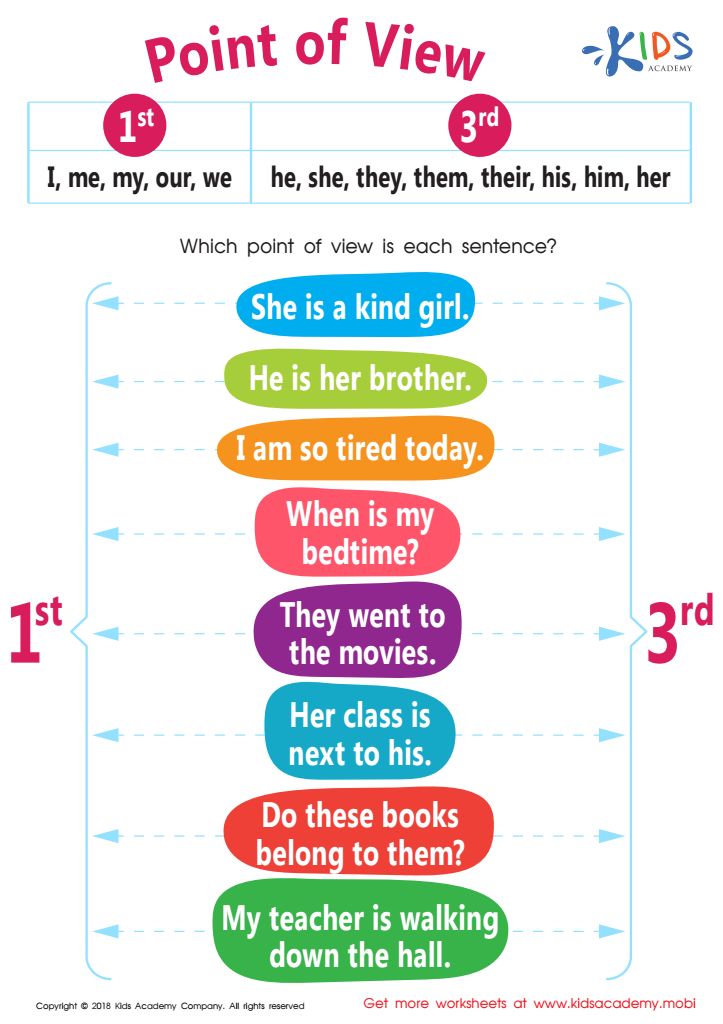

Point of View Worksheet
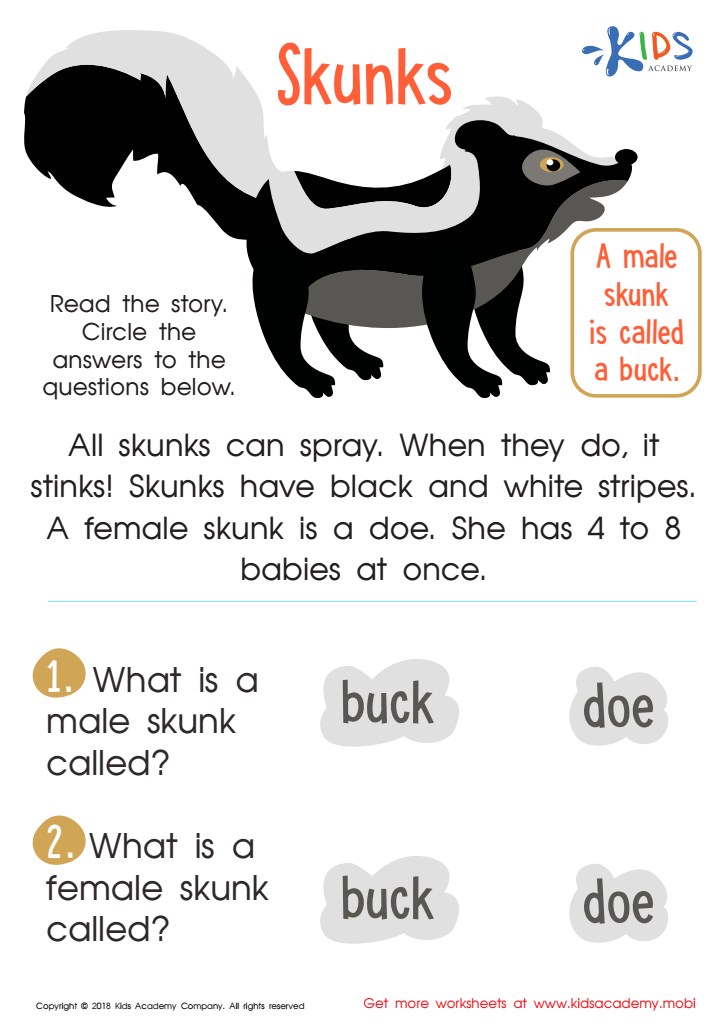

Skunks Worksheet
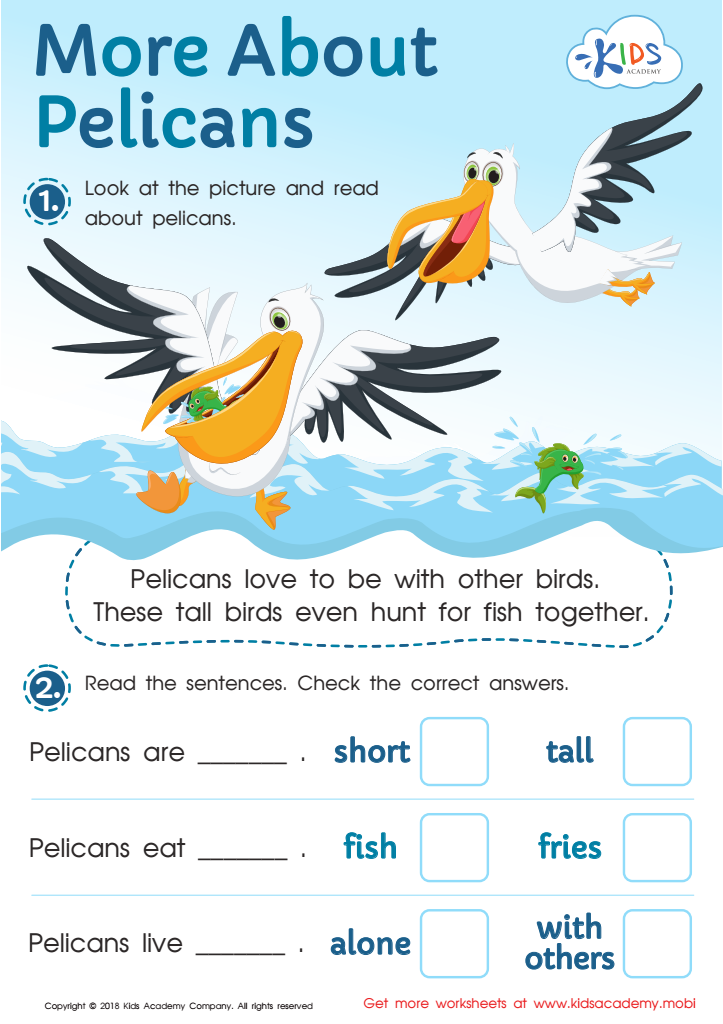

More About Pelicans Worksheet
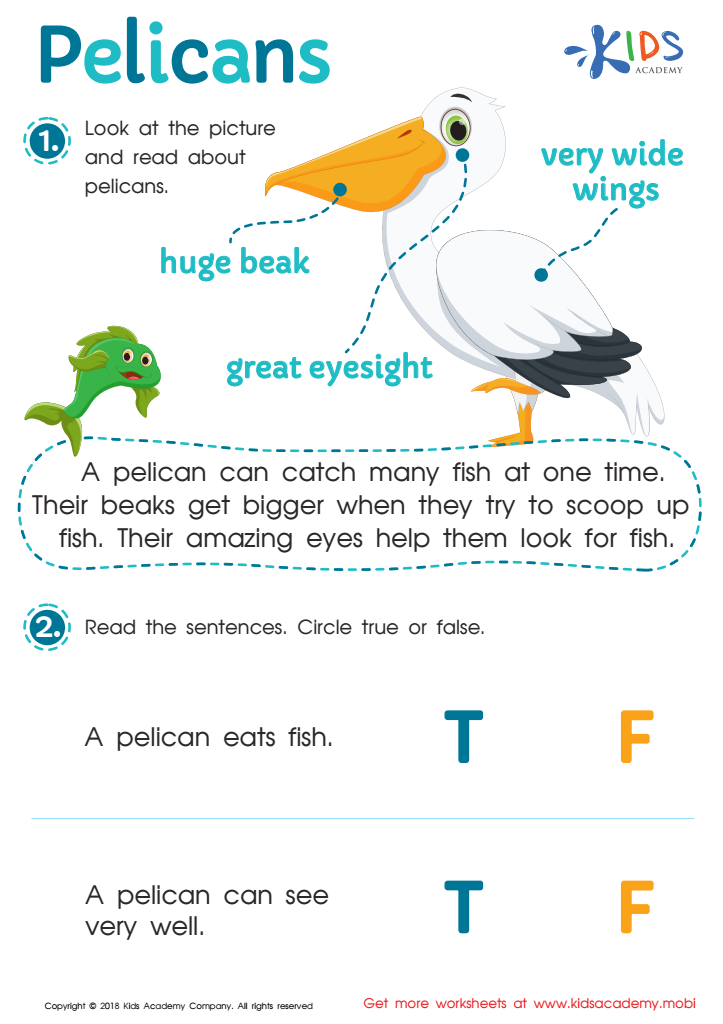

Pelicans Worksheet


The Dentist Worksheet
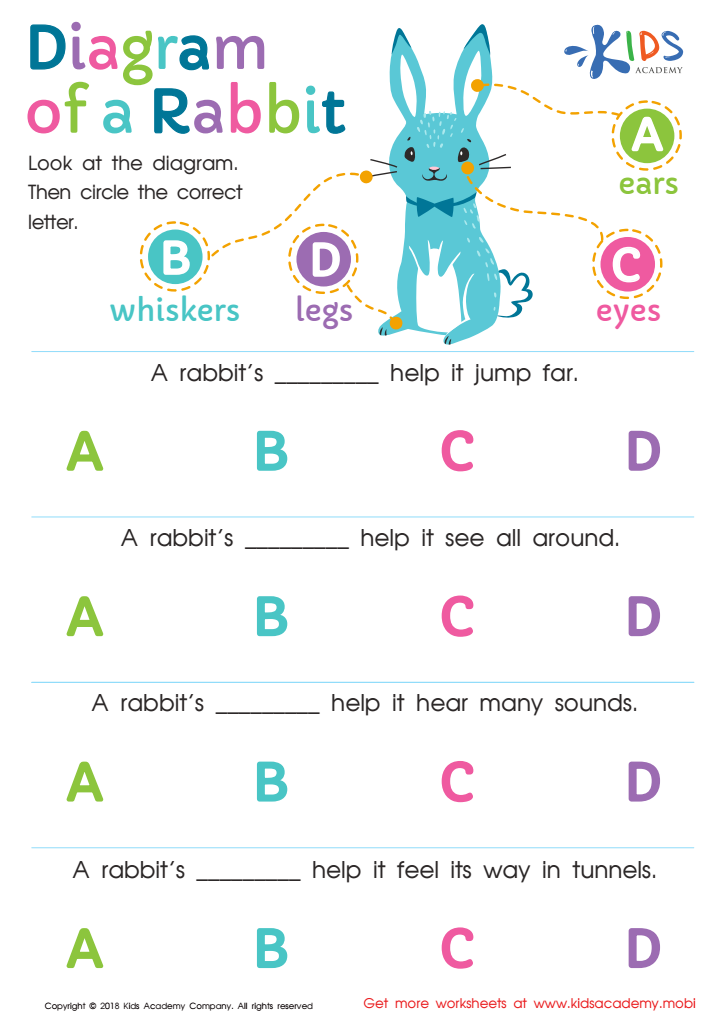

Diagram of a Rabbit Worksheet
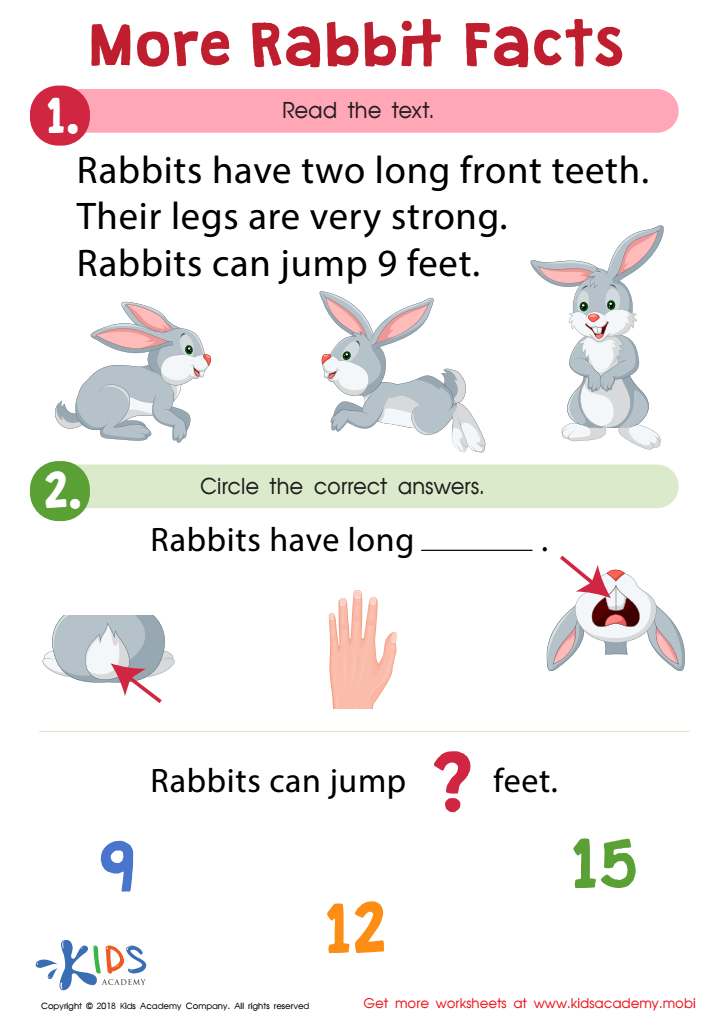

More Rabbit Facts Worksheet
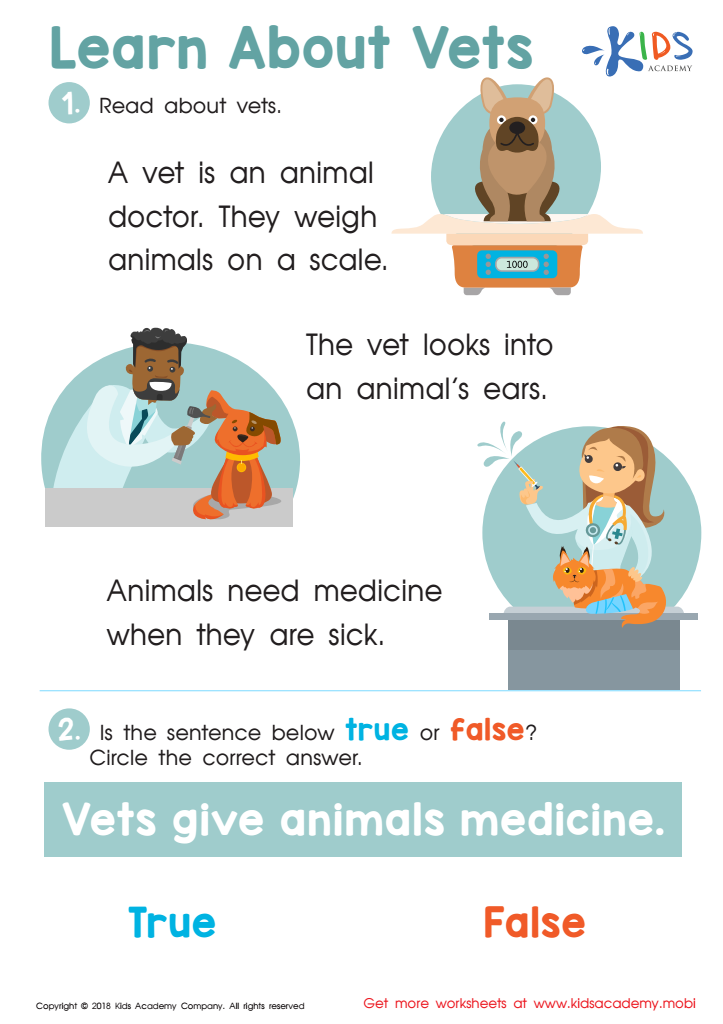

Learn About Vets Worksheet
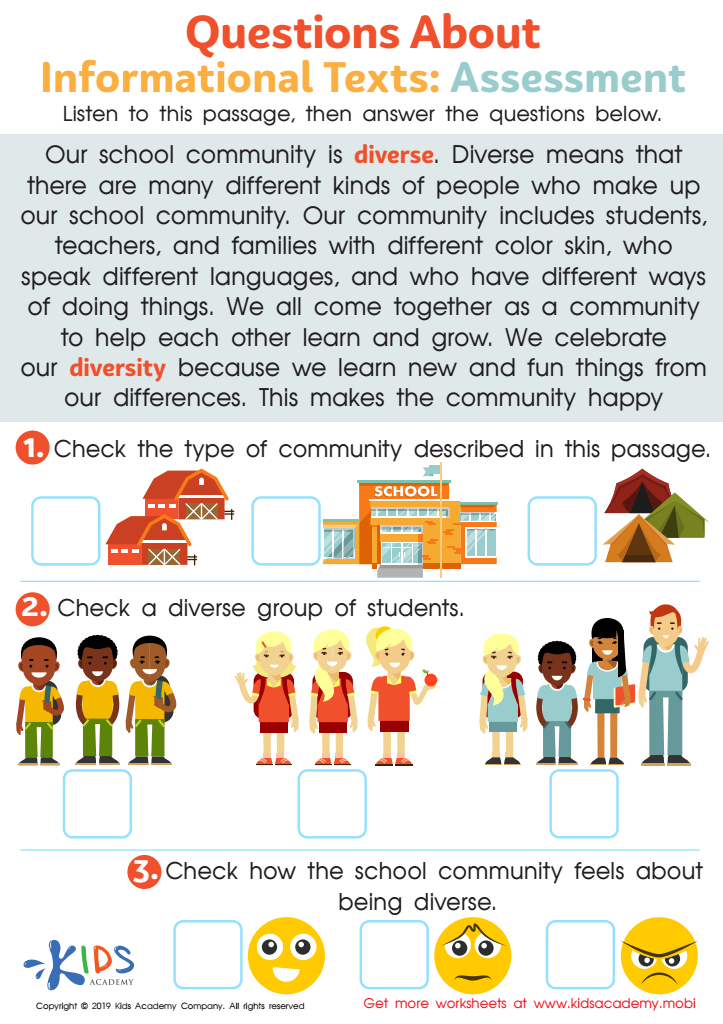

Questions About Informational Texts: Assessment 1 Worksheet
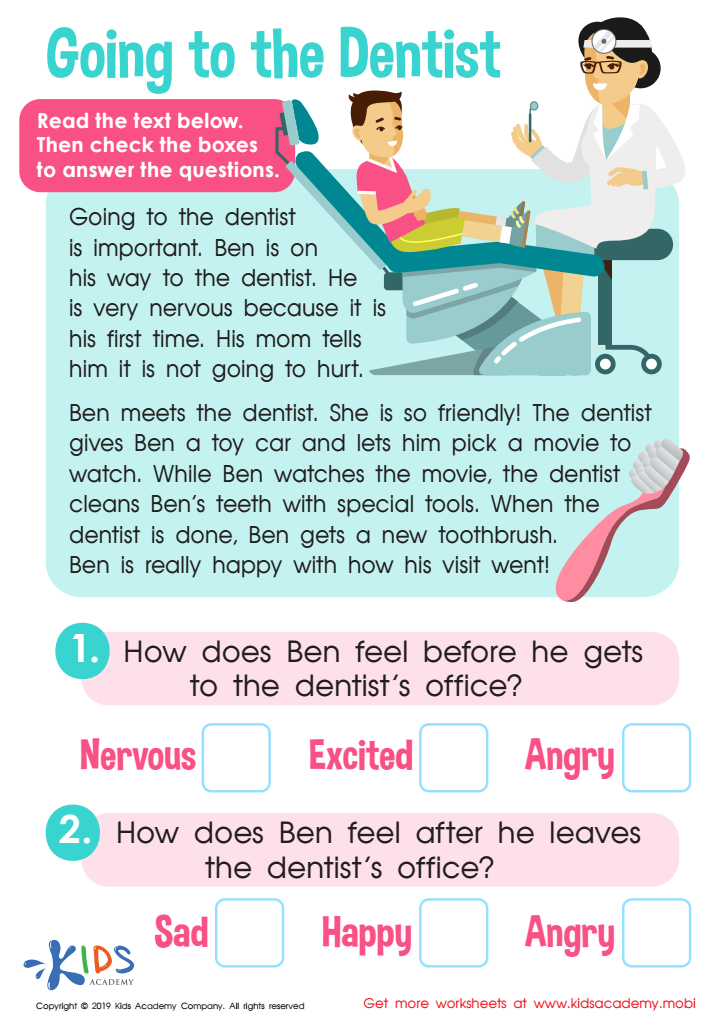

Going to the Dentist Worksheet
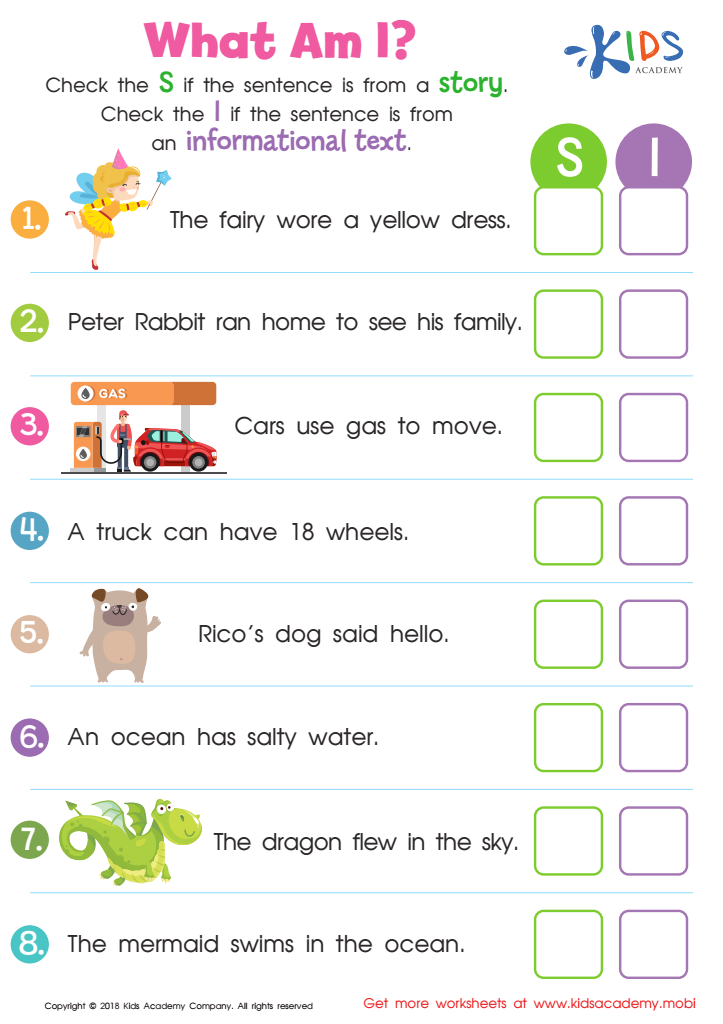

What Am I? Worksheet
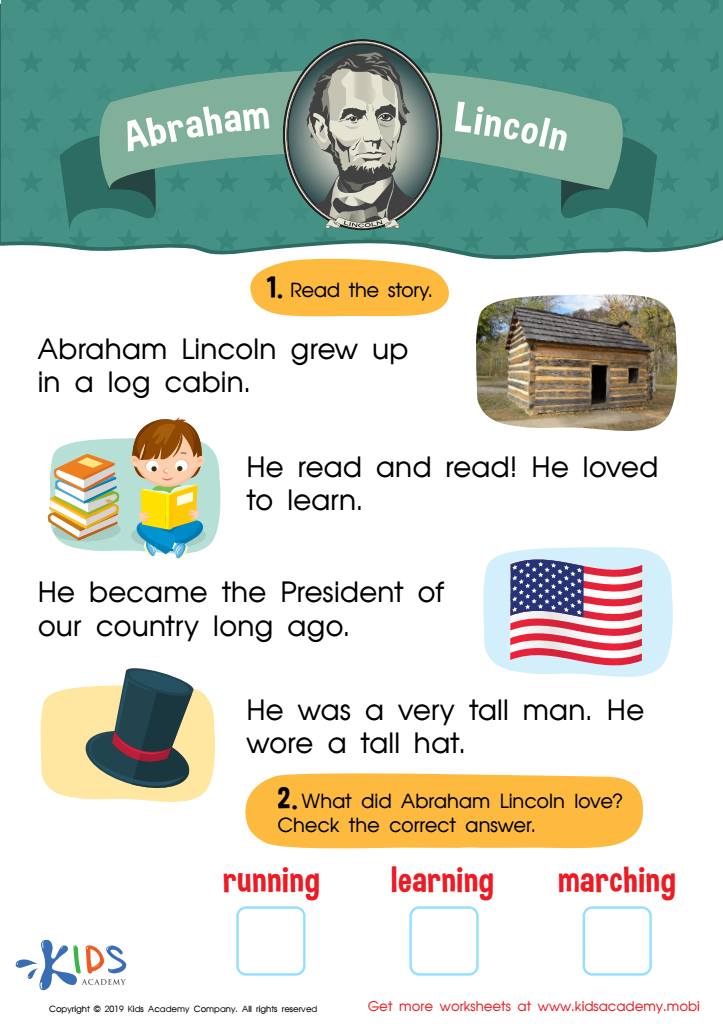

Abraham Lincoln Worksheet
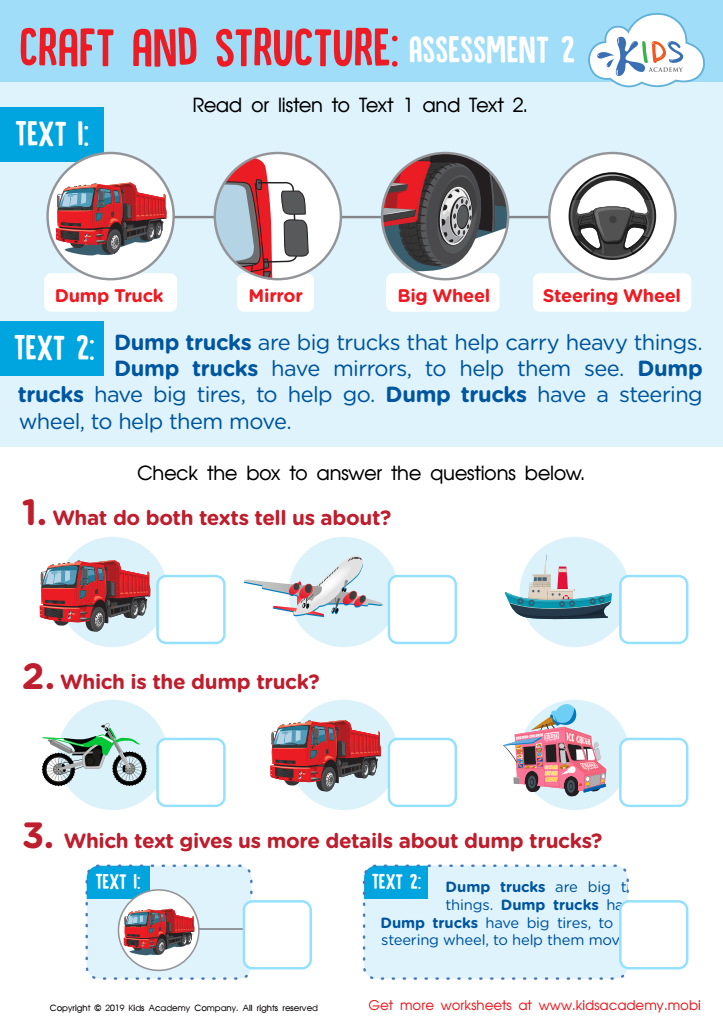

Craft and Structure: Assessment 2 Worksheet
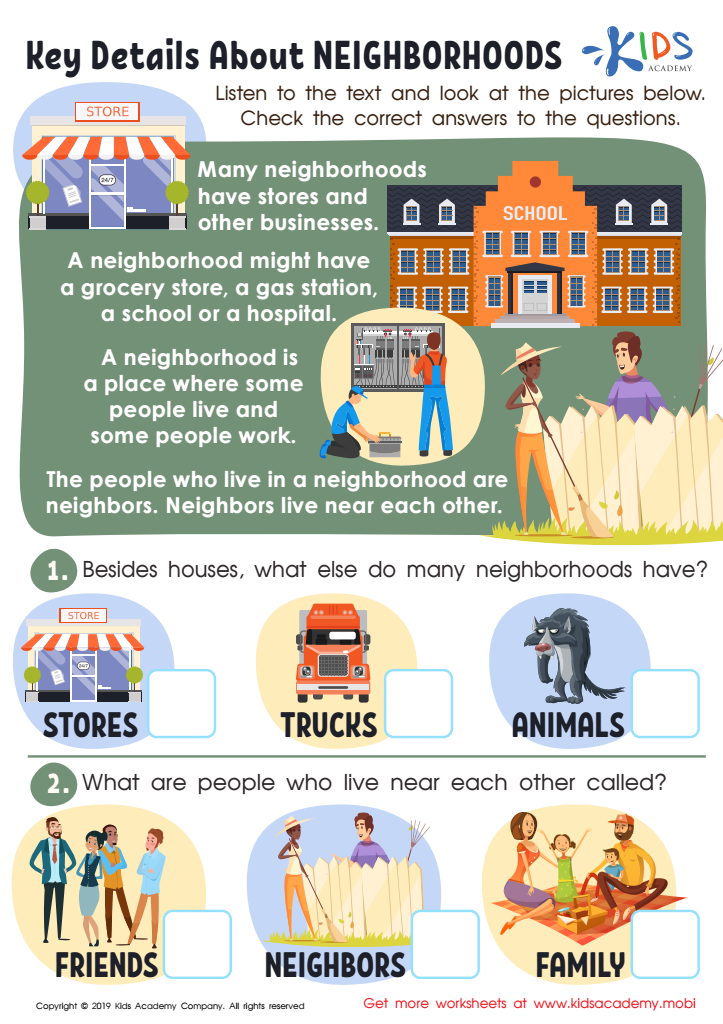

Key Details Neighborhoods Worksheet
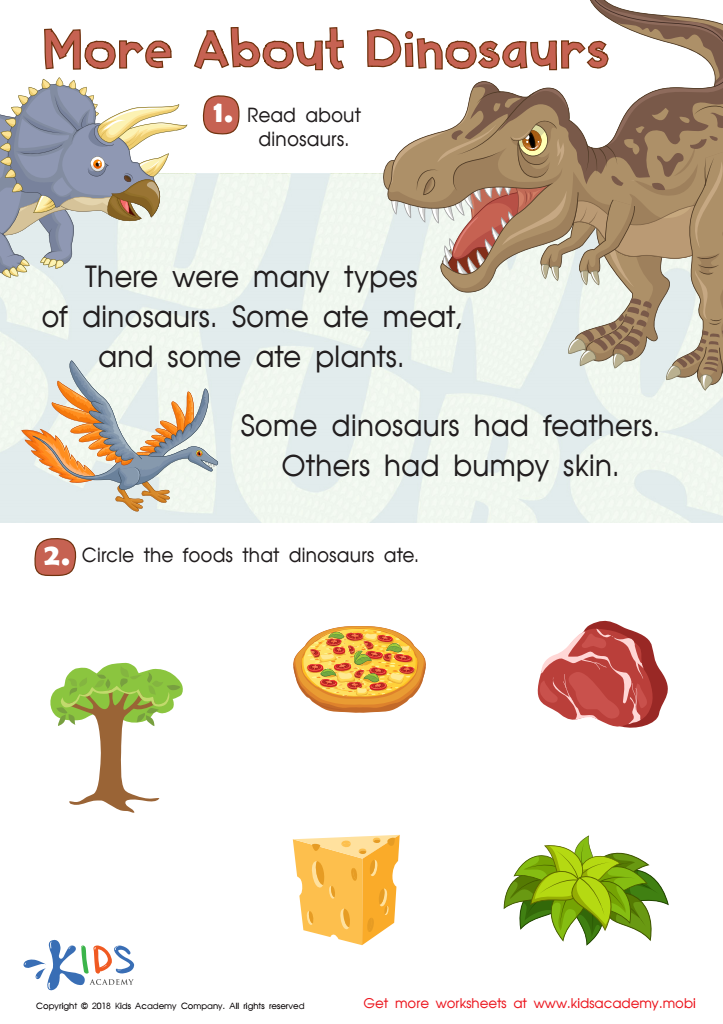

More About Dinosaurs Worksheet
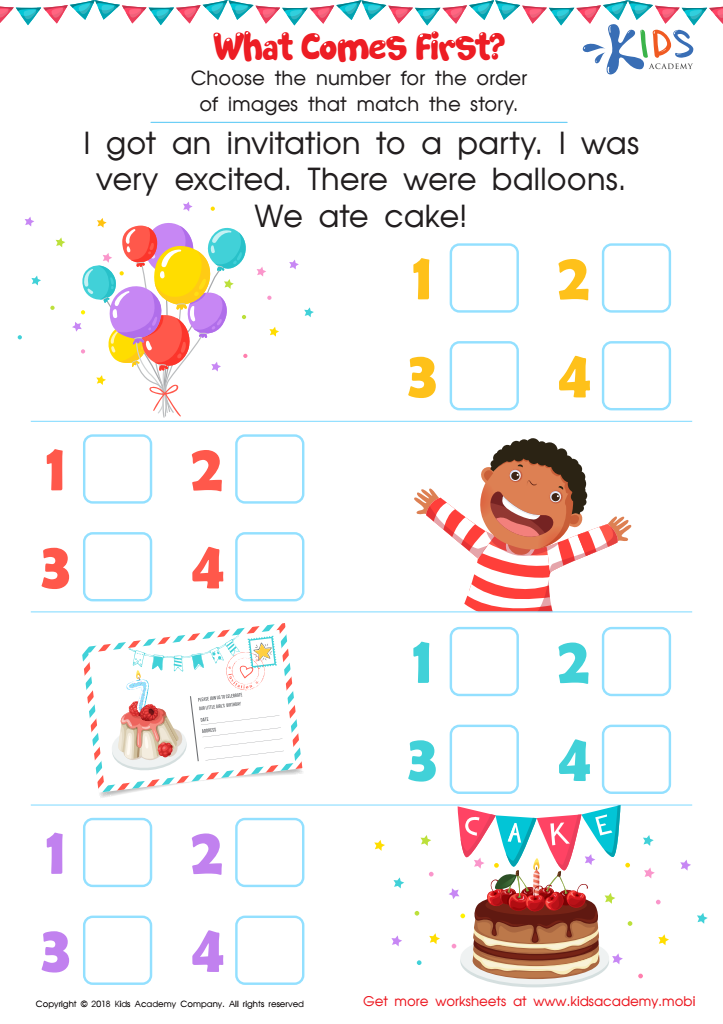

What Comes First Worksheet
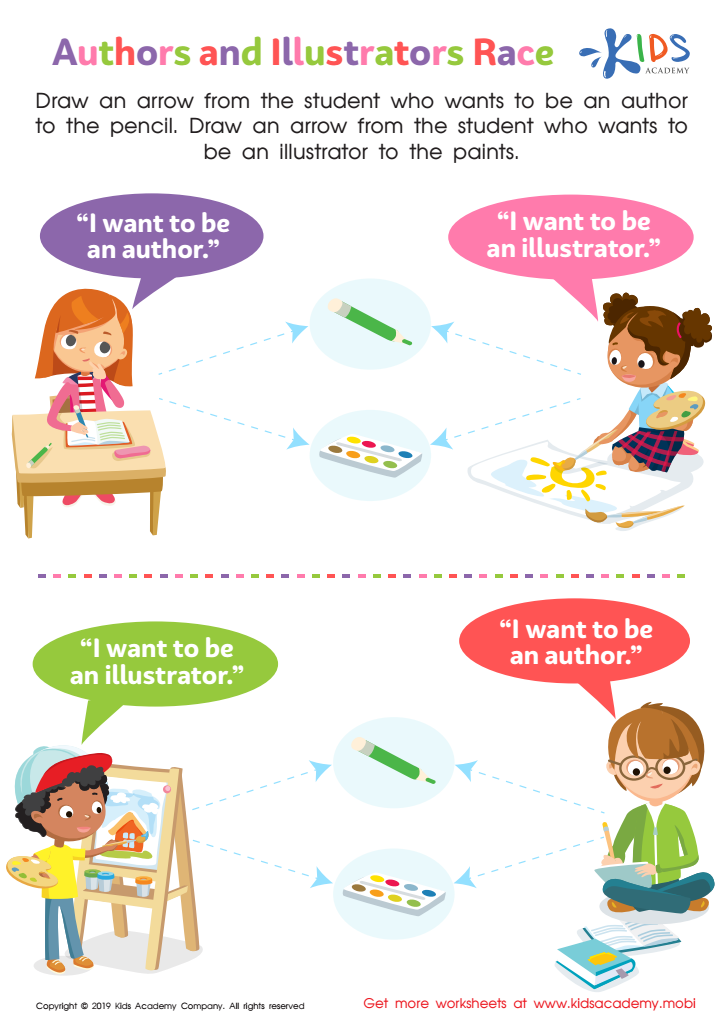

Authors and Illustrators Race Worksheet
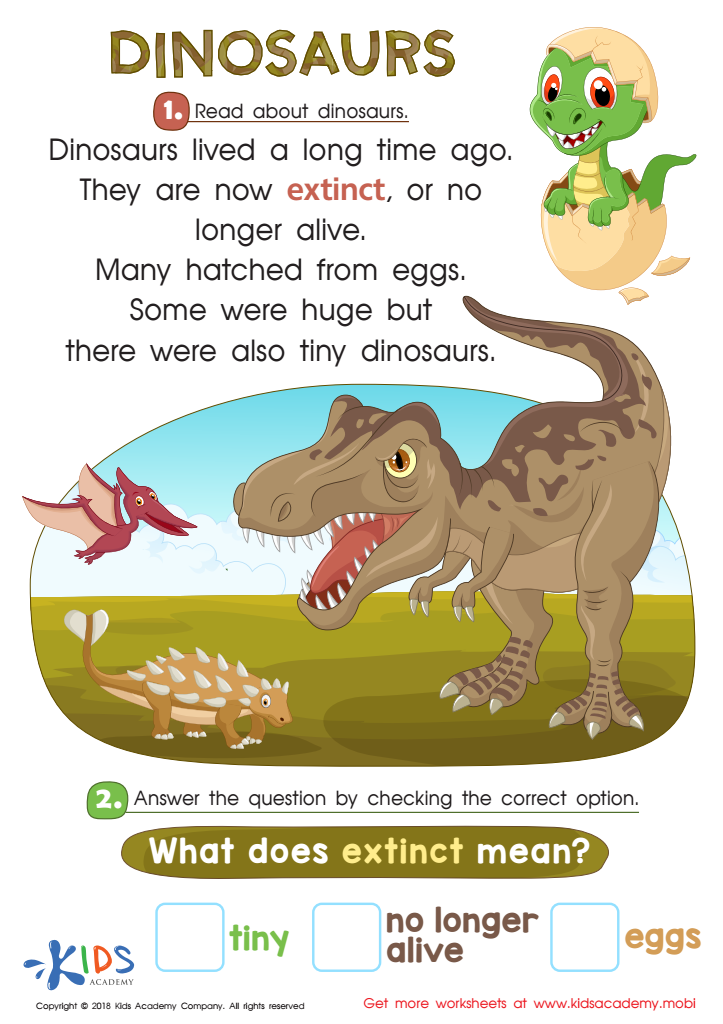

Dinosaurs Worksheet
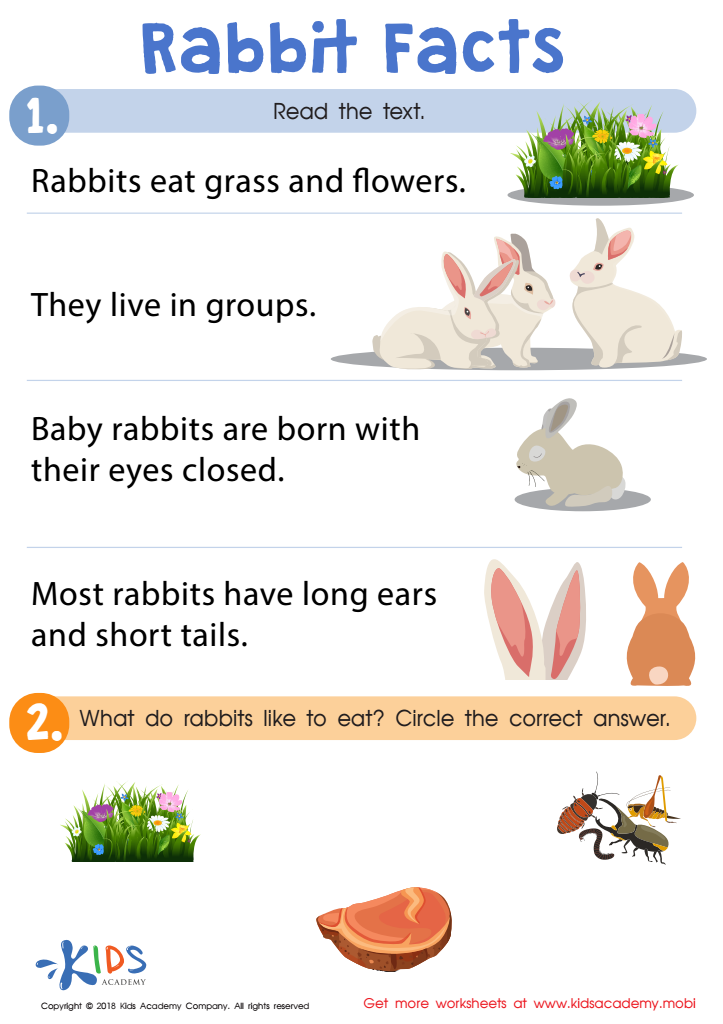

Rabbit Facts Worksheet
Reading comprehension in non-fiction for 6-year-olds is crucial for several reasons. At this age, children are developing foundational literacy skills that significantly influence their academic journey. Non-fiction texts expose young readers to real-world concepts, facts, and ideas, fostering curiosity and critical thinking. Understanding non-fiction helps children make connections to their surroundings, engage with knowledge in subjects like science and social studies, and build a more comprehensive worldview.
Parents and teachers play a vital role in nurturing these skills. By encouraging the exploration of non-fiction, they can enhance vocabulary, improve analytical skills, and promote narrative understanding. When children grasp the nuances of factual texts, they not only learn to extract essential information but also develop the ability to differentiate between opinions and facts. This skill becomes increasingly valuable as they progress in school.
Moreover, fostering strong reading comprehension from an early age has long-term benefits; it sets a foundation for academic success, instills a love for reading, and equips children with the tools they need for lifelong learning. By prioritizing reading comprehension in non-fiction, parents and teachers help cultivate informed, confident, and engaged learners ready to tackle increasingly complex material in the future.
 Assign to My Students
Assign to My Students








